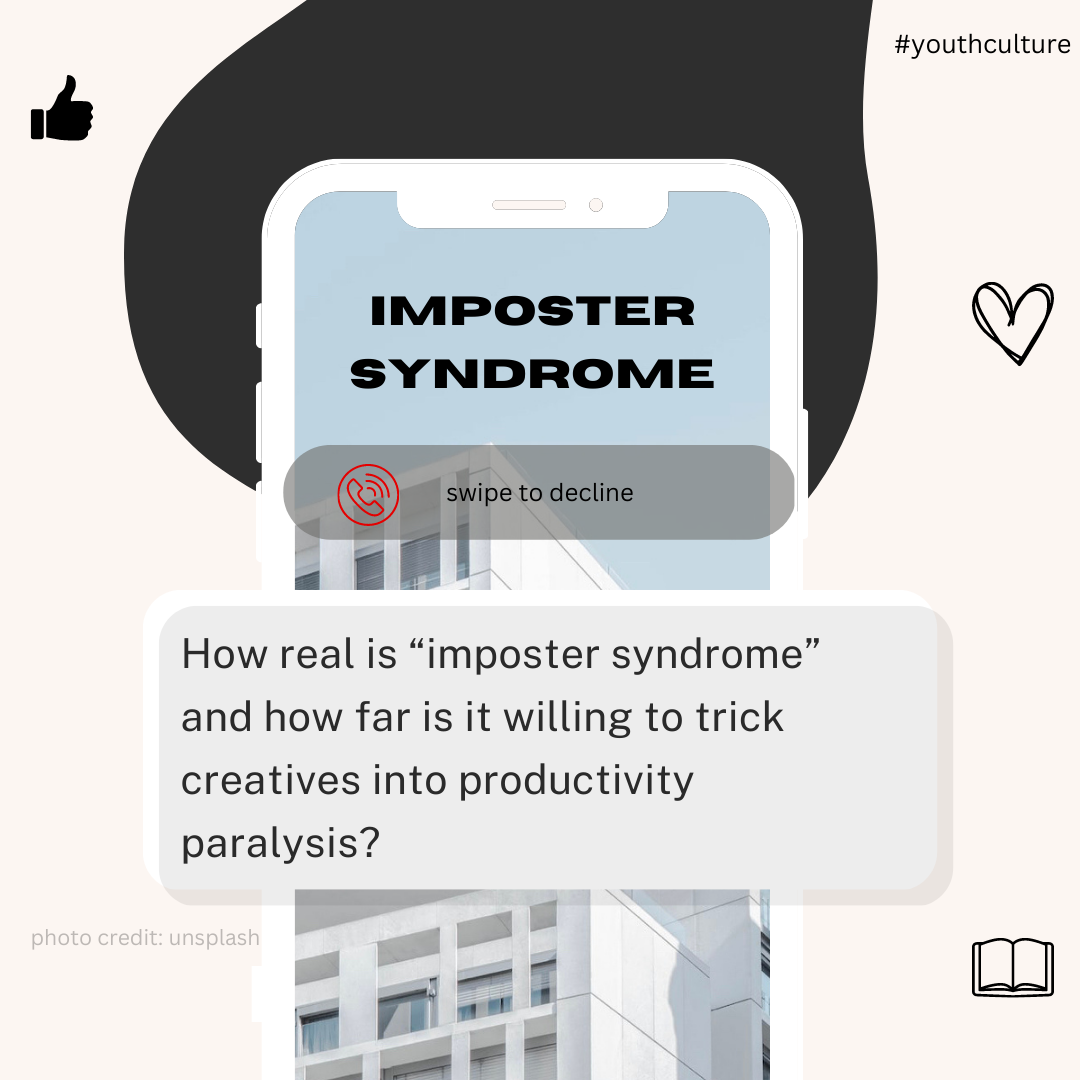- Discover the three foes behind productivity paralysis that creatives sadly mistake to be imposter syndrome
I am aware of someone who finds complacency to be their greatest pet peeve and who strives to always surpass himself in a setting where proverbs like “deception is medicine for the ignorant and self-sabotage is a cupbearer of the internal struggle…” are constantly present.
I have read and somewhat digested articles on the ever-resurfacing subject of imposter syndrome and discovered the reason many people still “struggle” with imposter syndrome, despite the numerous articles that seem to outnumber them, is that they haven’t grasped what imposter syndrome is.
Imagine overcoming procrastination; getting out of a slump and completing that important task you so desperately wanted to cross off your to-do list, but feeling like a failure because your thoughts chorus “it’s not good enough” so the satisfaction only sits in your mind because you feel “your incompetency” will soon be discovered by others who will then label you as “sub, wannabe, almost-getter, fake-it-till-you-make-it-er.”
What if someone told you that imposter syndrome isn’t the issue and that the three real foes you haven’t yet identified are the reason why people continue to live in imposter-dom?
When the reality of it is accepted, imposter syndrome will not only be a name for this behavior pattern but also a cankerworm that will eat deeply into the creative person’s strengths. The real enemy here and the real thorn in flesh is “productivity paralysis”, which is characterized by a lack of zeal to “accomplish” because of criticism from within.

Photo by Milly Vuetti on Unsplash
People who are faced with IS admit to dealing with mood swings and unhealthy coping mechanisms, such as “reading books they have no business with at such times,”
“mindlessly scrolling through social media in search of nothing but a “entertainment high,”
“experimenting with drugs to induce feelings of euphoria so they can “feel good again,”
“sleeping at odd hours,” amongst others.
Whatever the situation, despite the fact that the person may want to feel better, they actually end up feeling worse because they are conscious of the fact that getting up and performing timely and helpful work is what they actually need to feel accomplished, not comfort. This “thorn in flesh” widens the gap between where a person ought to be and where they are reluctant to strive higher which equates to lost time as well as a confluence of complicated issues and a defeatist attitude. We cannot predict when or where this thought will surface, but we can choose to stand with those who do not give in to it as studies indicate that many people deal with this thought on a daily basis.
“Imposter syndrome is simply the belief that you are not good enough to be evaluated as suitable by the recipients of your work, whether directly or indirectly, and that you would not be said to meet the standards,”
We can now identify three factors if we take a closer look at this.
“other people”
“Unrealistic benchmarking”
“Blurry vision
When this subject comes up again, the question to ask yourself is “Am I still falling for this trick or am I now in control? ” Imposter syndrome is not the issue here; rather, these three things are; as a result. ”
This suggests that it will be simple to maintain our credibility when such thoughts arise once we let go of the need to please others and gauge success using metrics that are consistent with our purpose while adhering to our vision.
When we question ourselves, “What’s on the other side of imposter syndrome?” we can determine whether imposter syndrome is real or not. Because the true things that define us are what we seek, we can see that on the other side of it is simply a world full of possibilities where we are motivated by “great-steps-closer-to-purpose” and pleasing people is not ours to consider. As a result, we will live truly confident of our accomplishments and behave in that manner every day.


 Featured1 week ago
Featured1 week ago
 Business1 week ago
Business1 week ago
 News6 days ago
News6 days ago
 Football1 week ago
Football1 week ago
 Football1 week ago
Football1 week ago
 Latest1 week ago
Latest1 week ago
 News6 days ago
News6 days ago
 Agribusiness6 days ago
Agribusiness6 days ago

